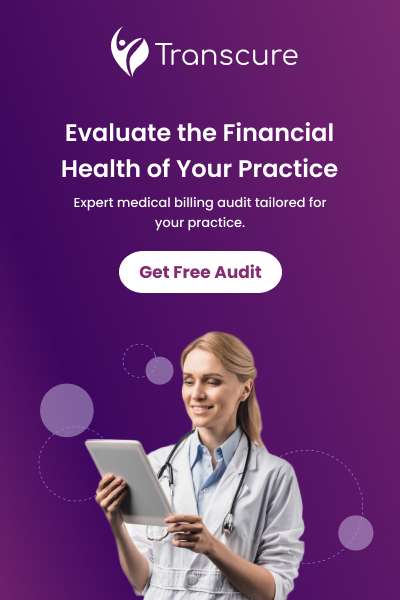This blog post holds the most awaited update by CMS! With the collaborative efforts of Medicare and providers, the most anticipated changes in ACO REACH model have been announced for performance year 2024. These changes are expected to improve the model by increasing participants up to 122 ACOs and maintaining consistency across CMS programs. This value based care model is a transformative initiative that not only makes quality healthcare accessible for underserved communities but is also an attractive proposition for the providers involved in delivering care to Medicare beneficiaries. It offers numerous benefits to providers, which include reduced beneficiary alignment minimums, 10% alignment buffer, financial guarantee policies, and whatnot. Keep on reading to discover more!
Table of Contents
Toggle1. Increased Predictability of Participant Requirements
The known is always better than the unknown. That’s why one of the primary benefits for providers under the ACO REACH value based care model is the increased predictability of participant requirements and benchmarks. This model is the redesigned form of the GPDC model and CMS has made several adjustments in it to ensure more consistent and attainable growth targets.
These clear and consistent targets allow providers to better plan and allocate resources while anticipating the level of effort and investment required to achieve establishment requirements. They also help providers in assessing the financial risk involved and take proactive measures to mitigate risks such as implementing cost-saving initiatives and adjusting care delivery models. Predictable targets also pave way for providers to improve the quality of their care delivery in order to get incentives. This way providers can establish long-term strategies and maintain stability with good outcomes.
2. Reduced Beneficiary Alignment Minimums in REACH Value Based Care Model
The minimum beneficiary alignment for PY2025-26 has been lowered for ACOs participating in PY2024. It is from 5000 to 4000 for New Entrants while for the High Needs Population ACOs, it is from 1200 to 1000. This reduction makes it easier for new entrants and high-needs ACOs to meet the participation requirements of the ACO REACH value based care model. Minimum beneficiary alignment also ensures that the ACO has a sufficient patient base to effectively manage and coordinate care. It also makes sure that the ACO meets the model’s financial and performance benchmarks in order to achieve the success of the program.
On the other hand, providers were worried about the challenges of maintaining consistency in their number of beneficiaries. For this, CMS will provide a 10& buffer on alignment minimums for all ACO types in PY2024. This 10% buffer allows ACOs to continue participation in the ACO REACH value based care model even if their beneficiary count temporarily drops below the required minimum.
3. Modification of Financial Guarantee Policies by CMS for Risk Management
CMS has modified the financial guarantee policies to provide relief for the joiners of ACO REACH. Here’s how they can now manage their financial risks:
i. Financial Guarantee Update for ACO REACH Value Based Care Model
If an ACO has either fully paid any shared losses or received shared savings, it only needs to update its financial guarantee for the current year’s requirements. This means they don’t need to keep securing guarantees for previous years once those obligations are settled.
To avoid shared losses, providers must ensure mistake-free professional medical billing and accurate coding. Being a vigilant member of an ACO REACH model you can take professional assistance from expert medical billing companies like Transcure. We have 1100+ certified medical billers and coders who remain updated on all CMS updates to actively assist you and make you reimbursed correctly.
ii. Increased Guarantee for Certain Options
For ACOs choosing Enhanced Primary Care Capitation or the Advanced Payment Option, the financial guarantee will increase to 4% starting in PY2024. This is up from 2.5% or 3%, depending on the risk level. This higher guarantee helps providers manage risks better during financial settlements.
In simple terms, these changes make it easier for ACOs to manage their financial guarantees and ensure they have enough funds set aside to cover potential losses, especially if they choose certain payment options.
iii. Provisional Settlement Updates
This update in the ACO REACH value based care will now reflect 12 months of performance year experience rather than 6 months. This modification helps in a more accurate estimation of the performance year’s results while aiding providers in better financial planning. With this, they can make informed decisions about resource allocation and budgeting.
4. Risk Adjustment and Payment Accuracy for ACOs
The redefined risk adjustment methodologies in ACO REACH value based care model benefit providers with ensured payment accuracy and fairness. Let’s break down how it manages the risk;
Revised Risk Adjustment Methodology
i. Risk Score Blending
Risk scores are used to determine how much funding an ACO receives based on the health needs of its patients. For Standard and New Entrant ACOs in PY2024 these scores will be calculated using a mix of two models. It will blend 67% of the current 2020 model with 33% of the revised 2024 model. This blend will help make the payment calculations more stable and reduce sudden changes that could negatively affect the ACO’s budget.
ii. Symmetric Risk Corridors
They are like safety nets for your financial performance. These symmetric risk corridors limit how much the actual financial results can deviate from the expected values. To support payment accuracy here, CMS will apply symmetric risk corridors to the Retrospective Trend Adjustment (RTA). This is a tool used to adjust the ACO’s benchmarks based on actual trends and performance. If the trends differ significantly from expectations, the RTA will adjust the benchmarks accordingly.
For instance, being an ACO if your financial results are within a small range, like 0-4%, you are responsible for the full impact of any adjustments. Similarly, if the results deviate more, such as 4-8%, the respective ACO will share the impact 50-50 with CMS. But if the deviation is beyond 8%, the ACO is not responsible for the extra adjustment beyond that.
These blended risk scores and risk corridors ensure that the financial performance of the ACO is more predictable, and this predictability serves in avoiding big surprises while funding. Moreover, with more predictable adjustments and stable benchmarks, ACOs can plan their budgets and investments more accurately. Another golden point of these refined methodologies in the ACO REACH value based care model 2024 is that they ensure that ACOs are paid fairly based on the actual health needs of their patients and real-world performance trends.
iii. Symmetric Cap and Coding Intensity Factor (CIF)
A 3% symmetric cap and a zero-sum model-wide CIF are applied to constrain risk score growth. For 2024, the CIF is capped at 1%. Here, the 3% symmetric cap limits how much the risk scores can increase or decrease by 3% to prevent large fluctuations. Whereas, Coding Intensity Factor is a mechanism to prevent risk scores from growing too much due to changes in coding practices. This means risk scores can’t increase by more than 1% due to coding practices, but to avoid this 1% risk, which is not small, it requires you to be vigilant when doing coding.
We understand that staying updated with the constantly changing coding practice is a challenging task and that’s why Transcure has trained professionals to ensure accurate coding and accurate reimbursements for your practice. You can take the assistance of our experts to ensure your practice easily maintains the impact of CIF limitations and ensures stability and success.
In the End…
Along with focusing on underserved communities and maintaining health equity, the ACO REACH value based care model presents a comprehensive set of benefits for providers who are participating. The VBC healthcare model promises enhanced predictability and financial stability to providers, who ultimately will focus on health equity and deliver high-quality coordinated care. The participants of ACO REACH hold the future of value based care and will transform healthcare delivery for Medicare beneficiaries. In return, their own future will be secured with improved financial and operational support.
Frequently Asked Questions
How Value Based Healthcare Is Related to ACO REACH Model?
Accountable Care Organization Realizing Equity, Access, and Community Health Model is considered as a type of value based care model, as both models aim to improve healthcare quality while reducing costs. ACO REACH requires participating organizations to improve care coordination and patient outcomes, which is central to the value based care model approach.
What Is the Objective of ACO REACH VBC Healthcare?
ACO REACH value based care model places a strong emphasis on health equity and require the participating ACOs to develop and implement plans to address health disparities in underserved communities.
What Is the Payment Model for REACH ACO?
ACO REACH uses payment structures like capitation and shared savings, similar to other value based care models, to align financial incentives with patient health outcomes.











